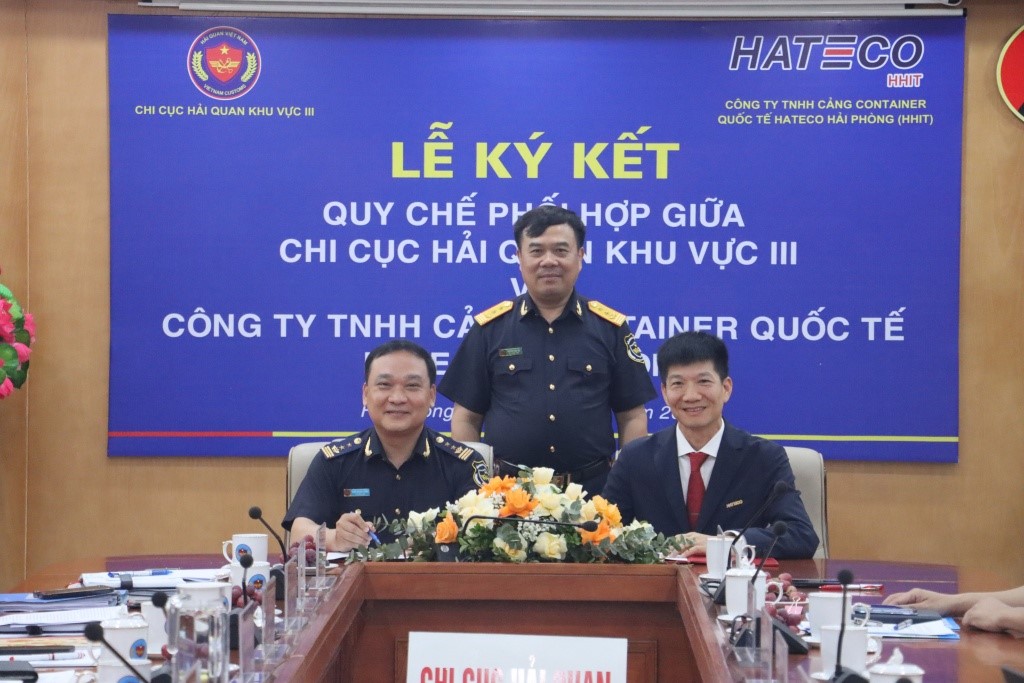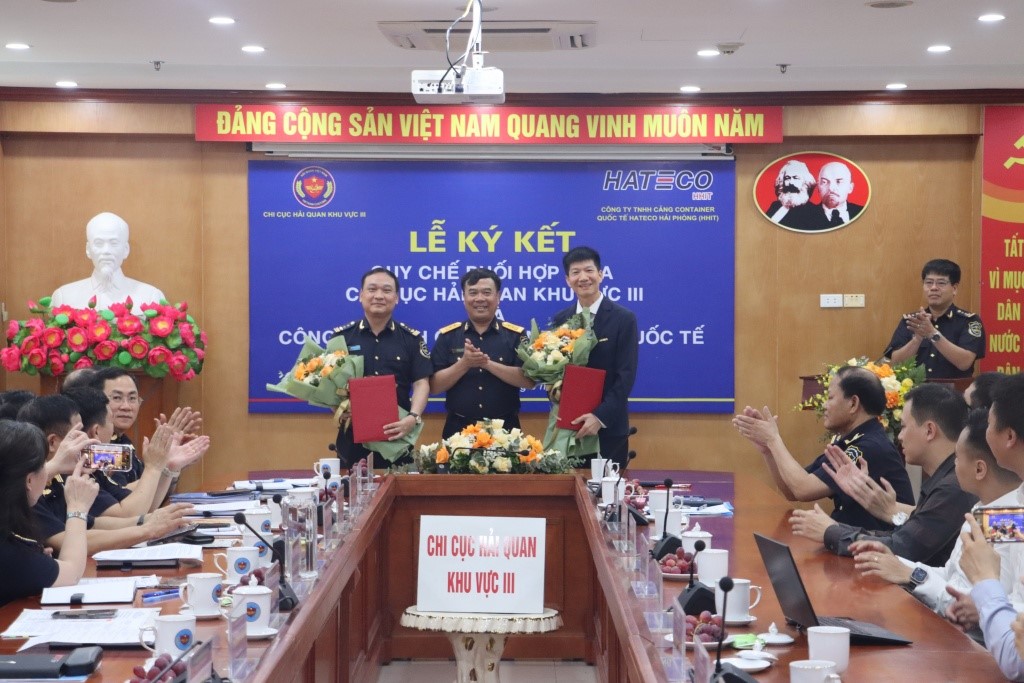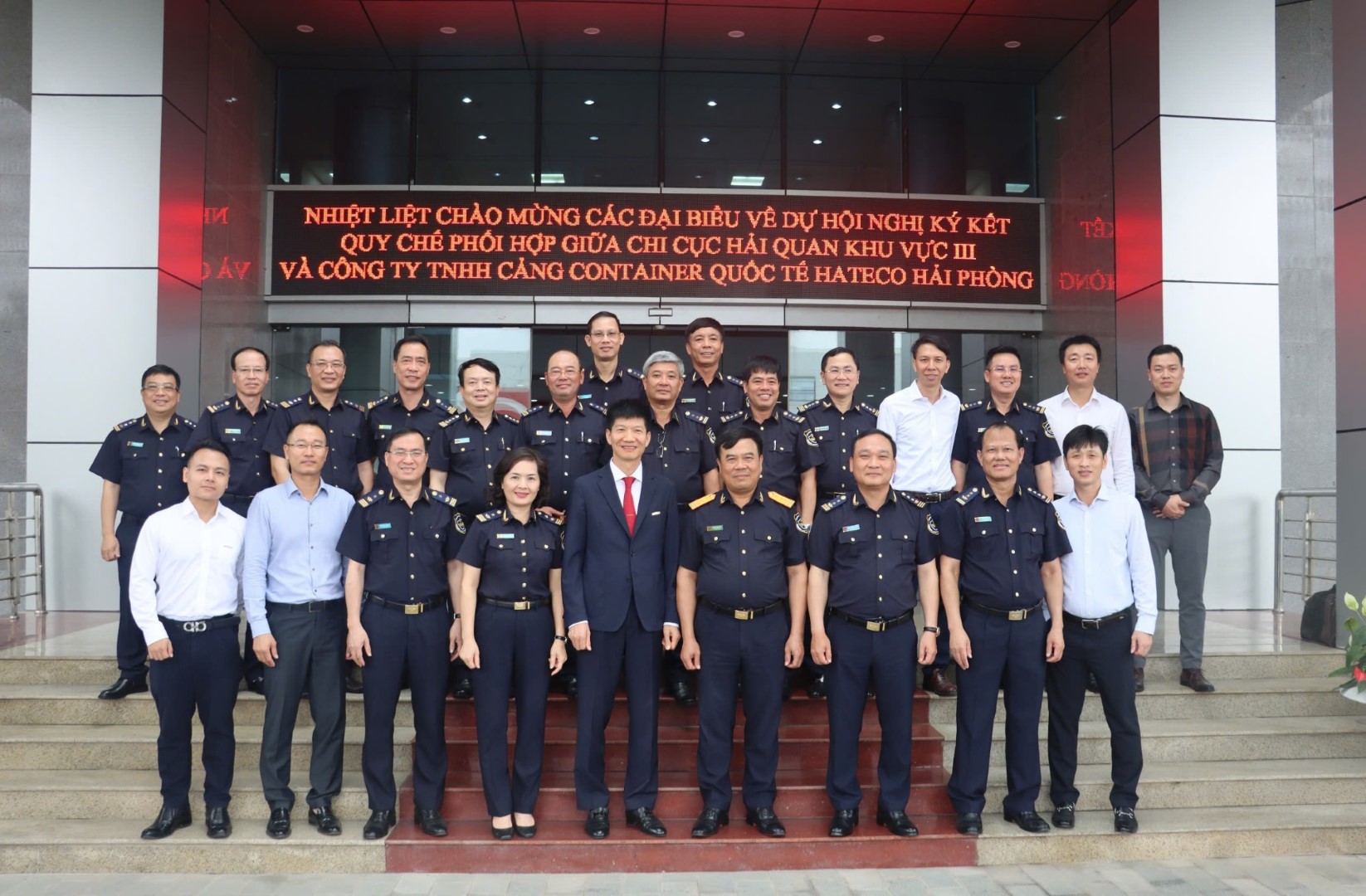HHIT and Regional Customs Sub-Department III Sign Coordination Agreement: Strategic Advancement in Trade Facilitation and Digital Customs Reform
Hai Phong, May 21, 2025 – The Regional Customs Sub-Department III and HHIT officially signed a Coordination Agreement to strengthen customs inspection and supervision, promote trade facilitation, and accelerate digital transformation in customs administration.
The signing ceremony was attended by Mr. Nguyễn Văn Thọ – Director of the Hai Phong Customs Department, Mr. Trần Mạnh Cường – Head of Regional Customs Sub-Department III, and Mr. Nguyễn Văn Tiến – General Director of Hateco Hai Phong Terminal.
 Mr. Nguyễn Văn Thọ, Director of Hai Phong Customs Department, witnessing the signing ceremony between the two units
Mr. Nguyễn Văn Thọ, Director of Hai Phong Customs Department, witnessing the signing ceremony between the two units
Speaking at the signing ceremony, Mr. Nguyễn Văn Thọ praised Hateco Terminal for its deliberate and well-coordinated investments in infrastructure and technology, which contribute significantly to the development of a “Green Port – Smart Port” model. He underscored that this initiative is closely aligned with the national strategic orientation toward digital transformation, private sector advancement, and international economic integration, as articulated in the recently promulgated resolutions of the Politburo.
The Coordination Agreement between the Regional Customs Sub-Department III and HHIT represents a significant milestone in Hateco’s strategic development. It affirms the company’s strong commitment to close cooperation with customs authorities in order to enhance customs clearance efficiency, reinforce transparency, and optimize logistics performance across the region.
 Mr. Nguyễn Văn Thọ presents congratulatory flowers to representatives of both parties
Mr. Nguyễn Văn Thọ presents congratulatory flowers to representatives of both parties
Speaking on behalf of Hateco Haiphong Terminal, Mr. Nguyễn Văn Tiến, General Director, stated: “This agreement is not merely an operational coordination, but a strategic move in our journey to develop Hateco terminal into a modern and intelligent container terminal. We will continue to invest extensively in infrastructure, advanced technologies, and human resources to raise service quality and operational efficiency. At the same time, we will coordinate closely with customs authorities to implement a fully digitized port management model.”
 Mr. Nguyễn Văn Thọ and executive representatives of both organizations at the signing ceremony
Mr. Nguyễn Văn Thọ and executive representatives of both organizations at the signing ceremony
Both parties also committed to regularly reviewing and evaluating the effectiveness of coordination, proactively addressing emerging issues within their respective competencies, and ensuring seamless cargo flow through the terminal. This partnership lays a solid foundation for advancing a smart port ecosystem—where technology, operational excellence, and regulatory governance are integrated to meet rising market demands and enhance the competitiveness of Vietnam’s seaport infrastructure.
Policy FrameworkThis cooperation is closely aligned with several strategic resolutions recently issued by the Politburo, which together form the foundation for Vietnam’s long-term development agenda. The Customs sector is actively and comprehensively implementing numerous solutions to remove obstacles and facilitate business activities for the enterprise community.
|



 No. 1 Huynh Tan Phat, Sai Dong B Industrial Park, Long Bien Ward, Hanoi City, Vietnam
No. 1 Huynh Tan Phat, Sai Dong B Industrial Park, Long Bien Ward, Hanoi City, Vietnam Phone:
Phone: Email:
Email: